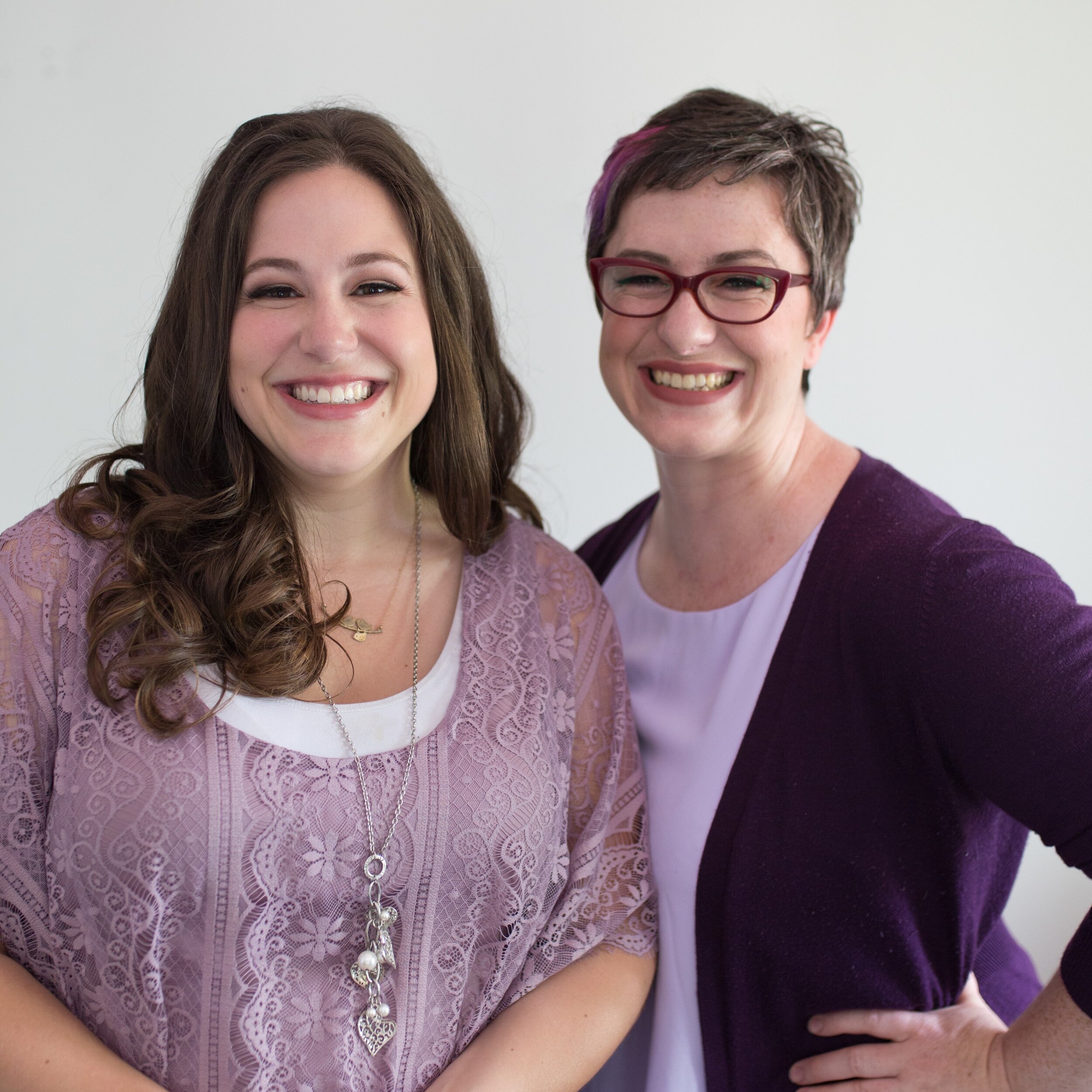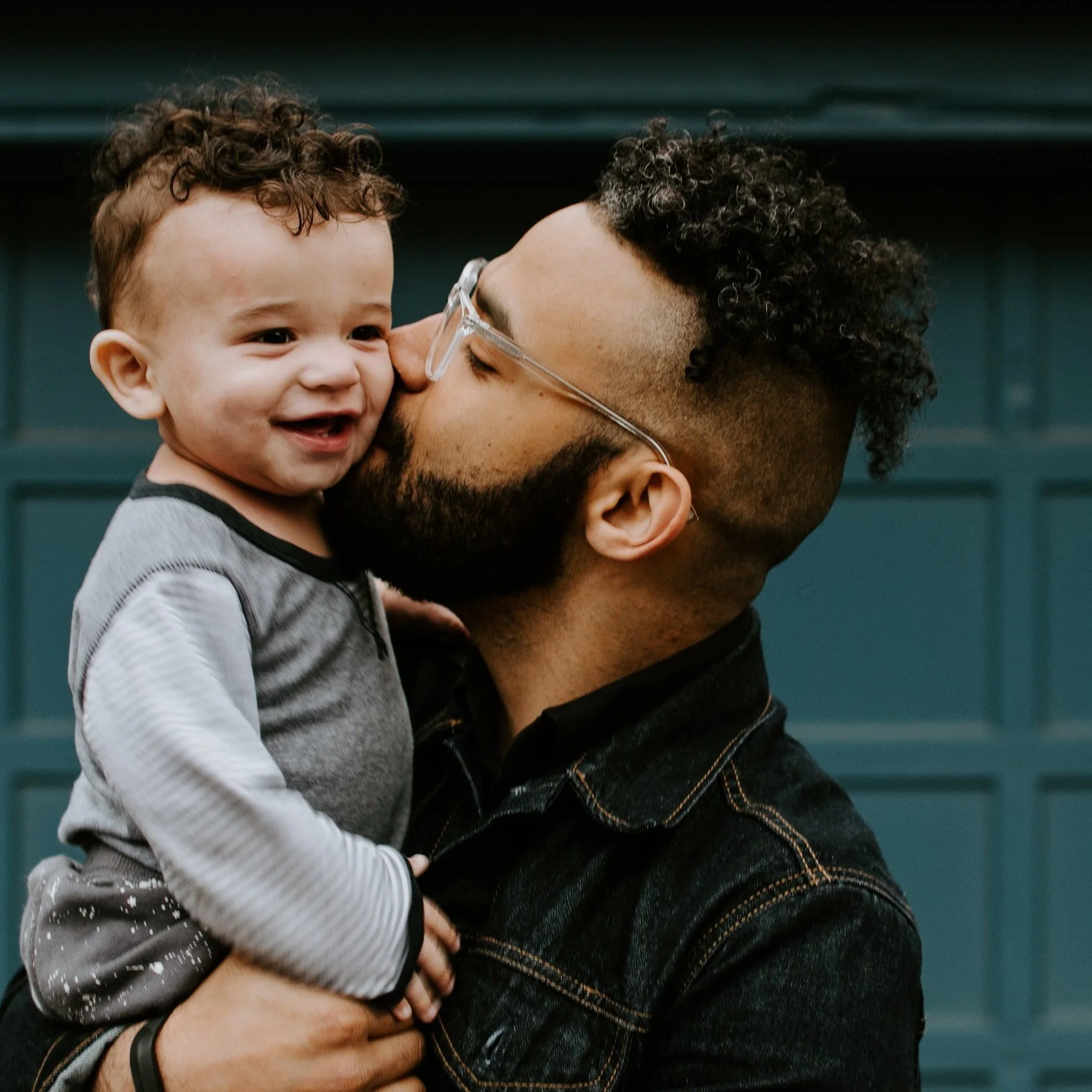What's it really like to support your lover? Part 2
This one’s for you dads and partners!
When we talk about birth preparation, a lot of the focus goes to the birthing person: how will they cope? how will they get through? what do they need to know?
Which makes perfect sense. Labour is an intense and transformative experience that takes a person to their edges and then asks for a little bit more.
And when we talk about birth preparation for partners and fathers-to-be, the focus is usually on how you can support your lover through it, what you need to do and say, to help. Which also makes sense.
The support SHOULD all flow in to the centre, to the birthing person – they need to feel your loving presence, a sense of connection and safety, to be able to fully surrender to birth.
And also, YOU are undergoing your own intense emotional transformation.
You are also being called on in a new and deep way.
Image description: a father snuggles under a comforter with twin babies.
It’s not something we often talk about and so you may find it challenging to watch the person you love work through such an intense physical, emotional, and mental feat as labour.
To watch the person you love struggle through moments of overwhelm and intensity, and sometimes even despair and suffering, without being able to stop it, fix it, or change it.
As Father's Day has just passed for those of us in North America, I wanted to share some thoughts and reflections from our clients on what it was like to support their partners through birth.
I interviewed three partners:
Drew – married to Meghan, expecting baby #1, planned hospital birth with midwives; spontaneous labour, cesarean birth; Doula Rachel (FYI Drew is also my little brother 😊)
Sarah – married to Dawn, expecting baby #1, planned hospital birth with midwives; induced labour, assisted vaginal birth; Doula Christine
Christian – partnered with Jess, expecting baby #1, planned hospital birth with OBs; spontaneous labour, precipitous, vaginal birth; Doula Christine
Everyone's responses were so great, I didn't want to cut anything out, so I've split this in to three parts.
READ PART ONE | READ PART THREE
Here is part two:
Once your partner was in labour, what most surprised you about the process?
Drew: “It's kind of hard to explain.
Because I was aware that no matter how much I could try to prepare, nature was going to take its course either way, I felt like I was along for the ride, so I personally kind of just rolled with the punches.
I guess what surprised me was how collected Meghan was through the hard and painful parts.
I had seen enough movies to think that labour was going to be absolute chaos. To see how Megs was able to be so methodical and was able to take it step by step really blew me away.”
Sarah: “Once in labour, it surprised me how quickly we ended up at the hospital. It also surprised me how much time our midwife spent charting vs. supporting (which made me so happy to have Christine there for support). It also made me realize that I really wanted an epidural when I am in labour one day!
What else...the passage of time was a strange thing...it felt like we were in another dimension with no knowledge of time. It felt so long and so quick at the same time.”
Christian: “The speed at which it progressed. I know this will be different for everyone, but for us, it escalated relatively quickly, and that meant being really adaptable, ensuring we (Jess, doula Christine, myself) were all communicating and working effectively and quickly as a team. It went amazingly well, but the speed of it really caught me off guard.”
Thinking back to your partner’s labour, what moment was the hardest or most intense moment for you, personally? What did you do to cope through that moment?
Drew: “This was an intense moment. Once we had decided that Ivy was going to be born at the hospital and we had all been set up in our room, there was a whirlwind of doctors and nurses flying in and out. I felt like no one was really addressing me personally, but I was picking up on little bits of dialogue between the doctors and nurses.
I heard them talking about Ivy's heart rate and how it was low and that it meant she was in distress and wasn't getting the oxygen she needed. I was told we were going to need to do an emergency C-section.
Through all of this all I was thinking was that my baby wasn't getting oxygen, so I was thinking that either we were going to have a baby with some kind of disability, or that we weren't going to have a baby at all.
I will never forget this moment.
The nurses gave me a set of scrubs and I was waiting to go into the OR and [our midwife] Tamara came to me and asked if I was okay. I wasn't. Haha. I was in tears. I asked her if my baby was going to be okay and she explained that baby's heart rate being low didn't mean that she was in danger. She told me that my baby was going to be healthy.
I'm not sure if it was how Tamara said it, but I knew everything was going to be okay after that.
I went into the OR saying "Let's go have a baby!"
Stink. As far as coping went, I'm not sure I did. I remember looking at you [Rachel] and Megs and just trying to fight the tears.
Once Tamara confirmed everything was going to be okay, I was able to take a step back and cope by letting nature take its course.”
Sarah: “There were two moments:
First - the moment Dawn realized she needed an epidural. First, she was at 9.5cm so I didn’t know if she was allowed to get one, and then I was worried that if she couldn’t get one, she wouldn’t be able to cope and would be in such horrible pain. I felt I had to advocate and push our midwife a bit to have it happen.
I am not sure how I coped. I think I took some deep breaths. I looked Dawn straight in the eyes and asked if she truly wanted this. I remember thinking that I would have a stern talking to the midwife and demand it. Then I spoke with Christine and just said ‘She needs it, this has to happen’ and then it happened.
Second (and if I chose one, definitely the hardest) - when they had to get the OB in and she said we needed to use the vacuum. The room filled with people and got very medical and intense...then the vacuum popped off twice...and I saw it, it was awful to watch...then they said forceps were coming.
I just kept thinking ‘Don’t hurt my baby, don’t you dare hurt him’...it was extremely difficult. We had to all of a sudden put all of our trust in this new person (the OB) who we did not have a relationship with him.
I am not certain if I did cope with this, it was very hard. I focused on helping Dawn...I held her hand and helped her count through the pushes. I had control over that, so that’s where I focused.”
Christian: “When we created our birth plan, Jess was intent on as much of a natural birth as possible, and preferably no pain medication. As labour progressed, it became apparent that the pain was greater than expected, but she persevered.
Seeing my partner in that much pain was agonizing. At some of the worst moments, I was able to be of help with hip compressions and lots of encouragement, which was relieving. Keeping my focus on supporting Jess was my best way of coping.”
Stay tuned for part three!
Doula support ISN'T just for birthing folks - it's for you, too. Sometimes fathers and partners worry that a doula will take their place in the birth room but our goal is to support YOU so you can support your lover at your best.
Sound like the kind of support you want?





